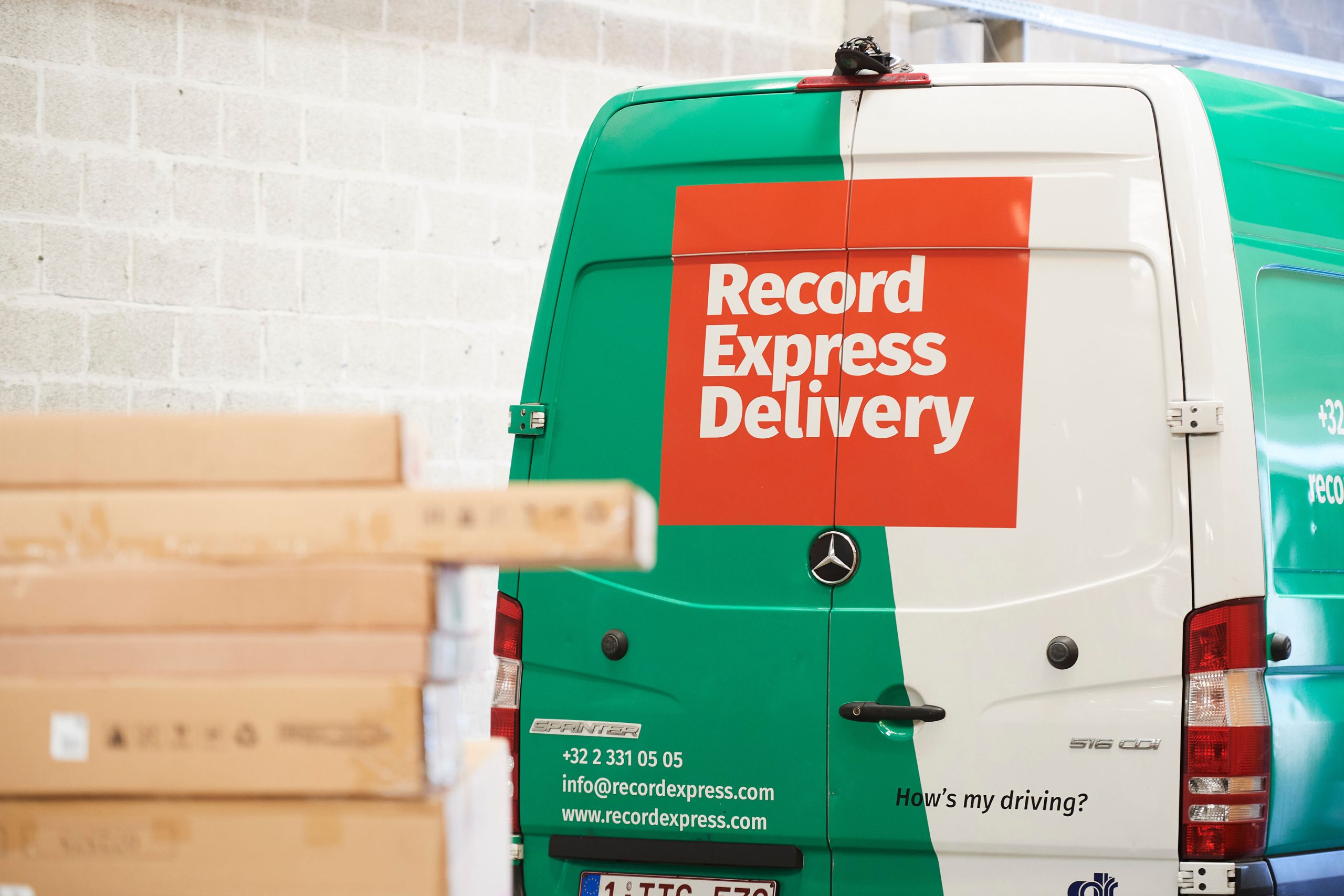Technology in Logistics
Technology in logistics refers to the use of digital tools, automation, and advanced analytics to improve efficiency, visibility, and resilience across supply chains. SEND PARCELHome / E-commerce logistics / Technology in Logistics

Technology in Logistics
TL;DR: Technology in logistics refers to the use of digital tools, automation, and advanced analytics to improve efficiency, visibility, and resilience across supply chains. From artificial intelligence (AI) and Internet of Things (IoT) sensors to robotics, warehouse automation, and blockchain, modern logistics technology transforms how goods are planned, moved, tracked, and delivered. In Belgium and the wider EU, technology is also a driver of compliance, sustainability, and competitive advantage.
What does technology in logistics mean?
Technology in logistics means applying digital systems and automation to manage supply chains more effectively (European Commission). It enhances every stage of logistics—planning, warehousing, transport, and last-mile delivery—by making processes faster, more transparent, and more cost-effective.
- AI-driven forecasting for demand and inventory
- IoT sensors for real-time location and condition tracking
- Robotics and automation for warehouse operations
- Blockchain for secure, auditable supply chain records
- Cloud platforms for collaboration and visibility
Takeaway: Logistics technology blends hardware and software to create supply chains that are smarter, more agile, and better prepared for disruptions.
How is AI used in logistics?
Artificial Intelligence (AI) supports logistics by predicting demand, optimising routes, and automating decision-making (McKinsey).
- Predictive analytics for demand and supply planning
- AI-driven route optimisation for faster deliveries
- Automation of customs documentation and compliance checks
- Chatbots and virtual assistants for customer queries
- Dynamic pricing models for freight and delivery costs
AI allows logistics firms to respond quickly to market fluctuations, reduce waste, and increase customer satisfaction. In the EU, AI applications also support compliance with carbon reporting and sustainability goals.
Takeaway: AI in logistics reduces costs and improves service reliability by enabling predictive and automated decision-making.
What role does IoT play in logistics?
The Internet of Things (IoT) connects physical shipments, vehicles, and warehouses with digital monitoring systems (IBM).
- GPS-enabled sensors track shipment locations
- Temperature and humidity monitors protect sensitive goods
- Vehicle telematics improve fleet management
- Automated alerts for delays or exceptions
- Integration with customer portals for live updates
IoT creates transparency in supply chains, giving businesses and customers real-time visibility of goods. In pharma and food logistics, IoT is essential for compliance with safety standards.
Takeaway: IoT enables real-time visibility and control, turning supply chains into transparent, data-rich systems.
How does automation improve logistics?
Automation speeds up logistics processes and reduces reliance on manual labour (ISO).
- Robotic picking and packing in warehouses
- Automated guided vehicles (AGVs) for material handling
- Sorting machines for parcel hubs
- Automated customs clearance systems
- AI-powered scheduling and dispatch tools
Automation improves accuracy, efficiency, and scalability. While upfront investment is high, long-term gains include lower operating costs, faster throughput, and better resilience during labour shortages.
Takeaway: Automation in logistics creates faster, error-free processes that reduce costs and improve scalability.
What are the benefits of blockchain in logistics?
Blockchain provides secure, transparent, and tamper-proof records for supply chain transactions (UNCTAD).
- Immutable record of goods’ journey from origin to delivery
- Smart contracts to automate payments and clearances
- Reduced fraud and errors in documentation
- Improved trust between supply chain partners
- Faster dispute resolution through shared digital records
Blockchain is especially valuable for international trade, where multiple parties and jurisdictions complicate supply chains. In the EU, blockchain projects support customs efficiency and sustainability reporting.
Takeaway: Blockchain adds trust and efficiency by creating auditable digital supply chain records.
How does technology improve sustainability in logistics?
Technology reduces the environmental impact of logistics through smarter routing, EV fleets, and carbon tracking (OECD).
- Route optimisation reduces fuel consumption and emissions
- Electric vehicles and alternative fuels lower carbon footprints
- IoT sensors improve energy efficiency in cold chain logistics
- Carbon tracking systems support regulatory compliance
- Data analytics identifies sustainability opportunities
As EU regulations tighten on emissions and sustainability, logistics firms rely on technology to meet targets and maintain competitiveness.
Takeaway: Sustainability in logistics depends on technology that reduces emissions and ensures regulatory compliance.
How Record Express applies technology in logistics
Record Express integrates advanced logistics technologies to provide reliable, transparent, and sustainable delivery services in Belgium.
- Real-time tracking and customer visibility for all shipments
- AI-driven route optimisation to reduce delays and emissions
- Fleet management tools with IoT integration
- Digital proof of delivery and electronic chain of custody
- Adoption of EVs and sustainable logistics practices
With these tools, Record Express ensures that Belgian businesses benefit from faster deliveries, lower environmental impact, and improved supply chain resilience.
🔗 Related reading:
- Sustainable Logistics Practices
- Logistics Compliance: Laws & Standards
- Expedited Shipping: How It Works
- Freight Forwarding Explained
- What Is a Courier Service?
FAQs
1. What technologies are most used in logistics?
AI, IoT, automation, blockchain, and cloud platforms are the most common in modern logistics.
2. How does AI improve logistics?
AI predicts demand, optimises routes, and automates documentation processes.
3. What role does IoT play in logistics?
IoT provides real-time visibility by connecting shipments, vehicles, and warehouses.
4. Why is blockchain relevant to logistics?
It creates tamper-proof digital records, improving trust and reducing disputes.
5. Does Record Express use logistics technology?
Yes—Record Express uses AI routing, IoT fleet management, and EV fleets to enhance reliability and sustainability.
Sources

Record Express was awarded a 59/100 score by EcoVadis, the global leader in sustainability ratings.